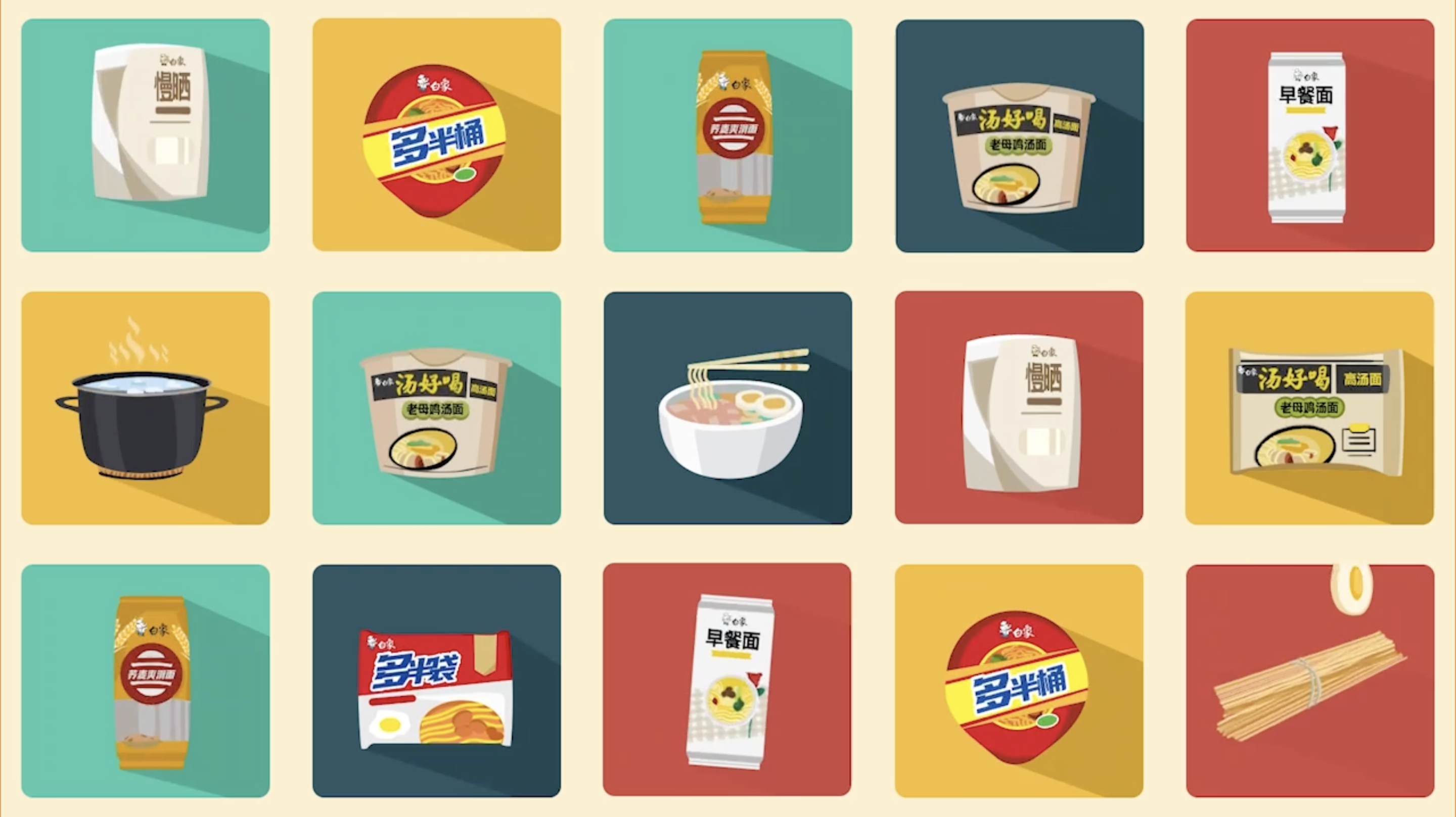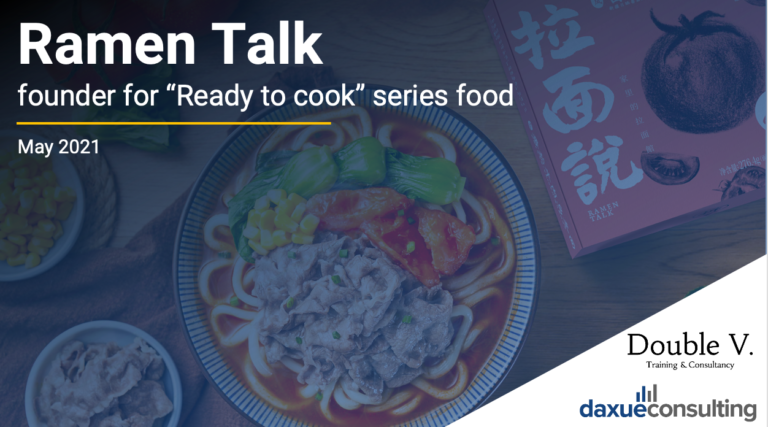While instant noodle giants Uni-President (统一) and Master Kong (康师傅) were busy dealing with the negative publicity for using problematic “dirt pickles” (土坑酸菜) after being exposed by CCTV at the annual “315” consumer rights, White Elephant’s (白象) sales skyrocketed to approximately RMB 10 million in just one week.
Much of the instant noodle market in China has been dominated mostly by Japanese-owned or Japanese-funded corporates like Master Kong. Struggling in the Instant noodle market in China for years, White Elephant’s market share was only at 7% as a domestic Chinese company, so how did White Elephant manage to fire out of the circle (出圈)?
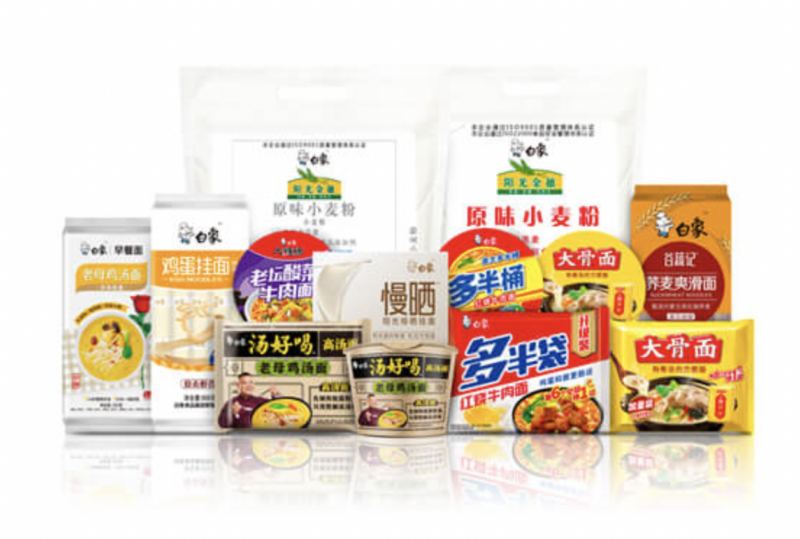
One-third of White Elephant’s employees are disabled
During the 2022 Beijing Winter Paralympic Games, White Elephant topped the Weibo ‘hot searches’ list after a video was posted online, where disabled employees of White Elephant were getting off work, which has touched many netizens.
Due to the high unemployment rate (44%) for individuals with disabilities in China, with about 50% of those who registered as employed being agricultural workers, shows how difficult it is for disabled individuals to be employed. However, one-third of White Elephant’s employees are disabled, as White Elephant offers them equal pay for equal work, and they are called “self-improvement employees” in the company.
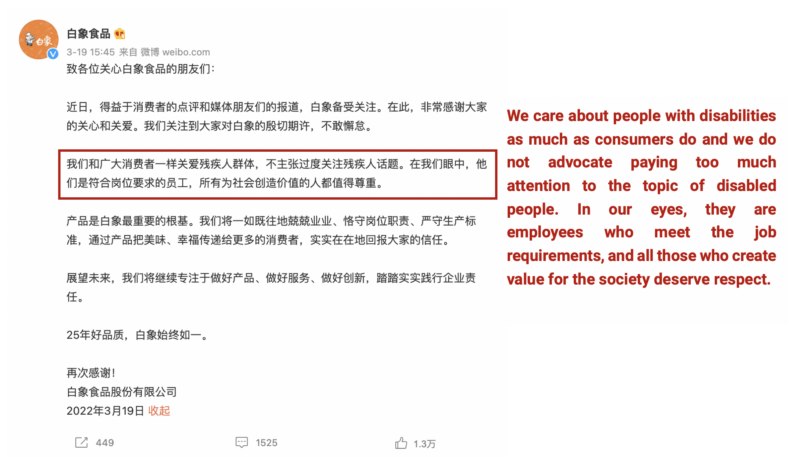
White Elephant encourages consumers to consume rationally
With the growing publicity that White Elephant is receiving, Chinese customers raged to purchase products from the company. According to Huitun Data, as of March 23, the number of fans of White Elephant’s Tiktok official account has increased by more than 358,000 and its Tiktok live broadcast room has sold products worth over RMB 8.10 million in just a week. In response to the enthusiasm of customers, White Elephant has put on a banner that encourages consumers to consume rationally on its Taobao store.
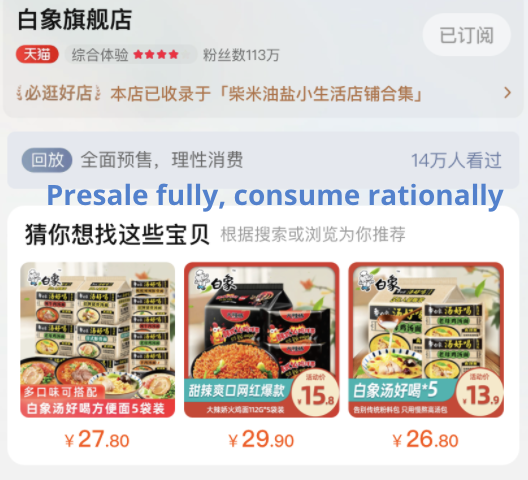
White Elephant fully embraces corporate social responsibility (CSR)
White Elephant’s CSR activities are not limited to offering disabled people job positions. In fact, the company has been actively committed itself to charitable works for decades. During the flood in Henan in 2021, White Elephant donated all its instant noodles stocks, in addition to RMB 5 million in cash.
The rising popularity of White Elephant is a result of its persistence of being a conscientious brand that cares about the well-being of consumers and society.
Partnering with virtual idol Nan Mengxia
In addition to the philanthropic work, White Elephant was one of the earliest brands to partner with a virtual idol in China. On January 7th, White Elephant announced its new virtual ambassador with Nan Mengxia (南梦夏), a young Chinese lady who lives in the Metaverse on Weibo and is also a classic Chinese beauty who loves Chinoiseries customs.
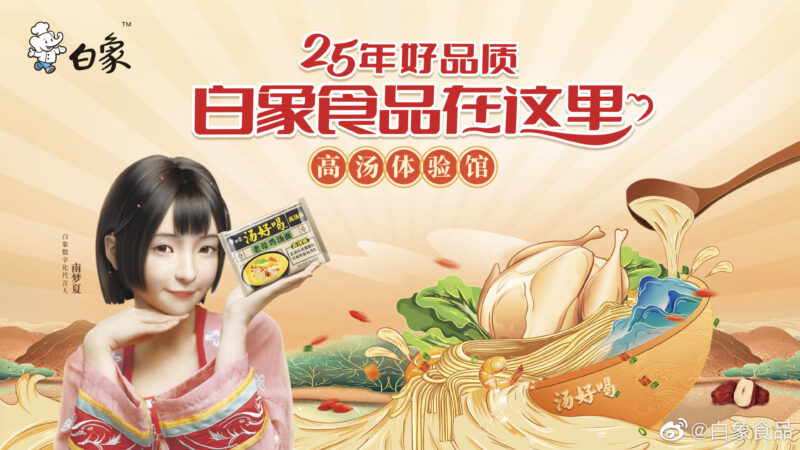
According to Mei Chen, Alibaba Group’s head of fashion and luxury, “Virtual influencers are extremely popular among younger fans and in particular Gen Z consumers who are curious to experiment and try new things.” Teaming up with virtual idols for commercials helps refresh the brand image of White Elephant and communicate with the demographic of Gen Z in the “language” they speak, a lot of whom have strong interests in two-dimensional (“二次元”) ACG content and the concept of Metaverse.
CLICK HERE TO LEARN MORE ABOUT KOL MARKETING IN CHINA
After several A-list stars were canceled in China over scandals that quickly deteriorated the images of brands, such as Kris Wu and Wang Leehom, brands are getting more aware of the potential risks of celebrity endorsements. However, cooperating with virtual KOLs whose images are fully controllable allows brands to fully avoid the risk of the potential negative impact of a real celebrity.
Key takeaways from White Elephant’s success
- Stay relevant – Embracing new trends and absorb them into your brand image refreshes the brand and expand potential audience as well.
- Put corporate social responsibility on the agenda – Making CSR efforts benefit both the society and the company in the sense that it helps build a socially conscious image of the brand, which would usually lead to increased sales and customer loyalty in the long run.
- Food safety cannot be compromised – Food safety issues not only affect the customers’ health and safety, but also risk damaging brand reputation and losing trust among customers. Taking measures like producing products in-house allow companies to have full control over the food manufacturing process.


